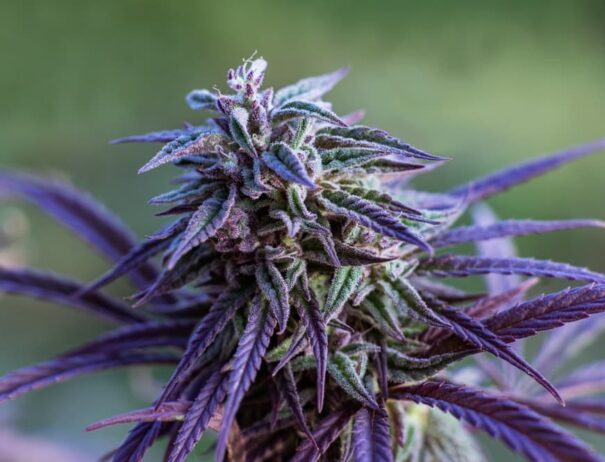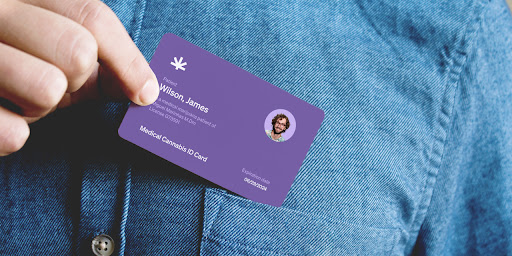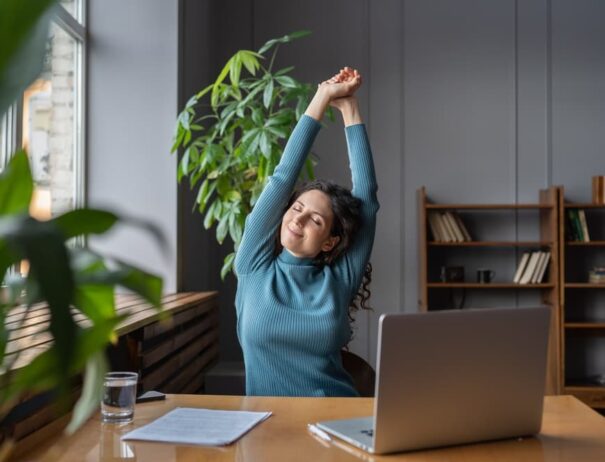Does Weed Help with Anxiety?
Anxiety can create immense barriers to people’s ability to enjoy their lives. Many Americans struggle with it occasionally while others feel anxious much of the time. While many traditional treatments are available for managing anxiety, the options are not always helpful for everybody. Many medications have negative side effects, leaving people searching for a way of managing their anxiety more naturally.
Cannabinoids offer an all-natural, popular alternative for those who wish to relieve their anxiety. Scientific evidence suggests that weed can be helpful for anxiety, but understanding how to use it safely is essential before you begin to incorporate it into your anti-anxiety regimen.
What Is Anxiety?

- Rapid breathing (hyperventilation)
- Sweating
- Shaking or trembling
- Weakness or fatigue
- Concentration problems
- Sleep disturbances
- Digestive issues
Occasional anxiety is a normal part of human life. However, when it begins to dominate your mind, interfere with your work or relationships, or affect your physical health, you need to find ways to manage it. Some of the more common varieties of anxiety disorders include:
- Agoraphobia
- Social anxiety
- Post-traumatic stress disorder (PTSD)
- Panic disorder
- Phobias
- Anxiety-induced sleep disorder
While some instances of anxiety may be attached to specific situations, such as an upcoming event or financial worries, anxiety does not always have a clear cause.
How Is Anxiety Traditionally Treated?
Anxiety treatments traditionally fall into one of two categories: behavioral and pharmaceutical.
Behavioral
Behavioral treatments involve making lifestyle changes that can help to reduce mental and physical stress levels. These interventions may include:
- Counseling or therapy, such as cognitive behavioral therapy (CBT) or psychotherapy
- Physical exercises, such as running, yoga, or swimming
- Mental exercises, such as meditation and relaxation techniques
- Improvements in sleep habits
- Reducing consumption of caffeine and other stimulants
Many people find that these changes are effective ways of managing their anxiety. Health professionals often prefer to begin with these interventions before prescribing a drug that will synthetically affect their patient’s brain chemicals. However, some find that the anxiety itself prevents the affected individual from being able to undertake these activities. Furthermore, those with intense anxiety disorders may find that such behavioral changes are insufficient to address their anxiety.
Pharmaceutical
Pharmaceutical treatments generally involve prescription drugs. These may include:
- Selective serotonin reuptake inhibitors (SSRIs)
- Serotonin and noradrenaline reuptake inhibitors (SNRIs)
- Pregabalin (an anticonvulsant often used to treat anxiety)
- Benzodiazepines (sedatives used as a short-term treatment for severe periods of anxiety)
While these medications may be effective for some, others may not find them as helpful. Furthermore, they can cause unpleasant side effects that many may find intolerable.
What Are the Side Effects of Traditional Anxiety Medications?
Many pharmaceutical interventions for anxiety carry the risk of side effects such as:

- Nausea, vomiting, and other digestive issues
- Loss of appetite
- Dizziness
- Dry mouth
- Excessive sweating
- Headaches
- Insomnia or drowsiness
- Reduced libido
- Difficulty achieving orgasm
Many people who have tried traditional medications find that the side effects are not a worthwhile trade-off. This realization has led to the increasing popularity of weed as an alternative means of managing anxiety.
Are Cannabinoids Effective for Anxiety?
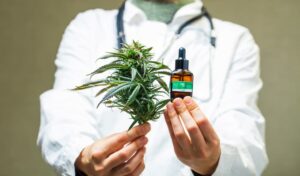
However, anxiety sufferers need to be careful. When a product’s THC levels are too high for a particular individual, they may be surprised to find that their anxiety increases. It is always recommended to start by slowly consuming in small doses.
Does Marijuana Have Other Side Effects?
While the correct doses of weed can be an effective way to manage anxiety without some of the serious side effects of traditional medications, cannabis also has its potential downsides. When administered incorrectly, some side effects may include:
- Increased heart rate
- Excessive sweating
- Racing thoughts
- Short-term memory or concentration problems
- Mood changes
- Paranoia
- Brain fog
- Decreased motivation
- Sleep issues
Furthermore, if you consume your weed via smoking or vaping, you may be at risk for lung irritation and issues.
Using Weed Safely for Anxiety

While vaping or smoking may be the most fast-acting means of using weed to mitigate your anxiety levels, the effects do not last as long as the effects of ingestible delivery methods. Cannabis edibles can take up to two hours to fully take effect, but you will feel the results for several hours.
When consuming cannabinoids via edibles, you should start with low doses. Even small doses can help relieve your anxiety, particularly if you are new to cannabinoids. If you don’t feel anything after a couple of hours, you can always take a bit more. On the other hand, undoing the effects of taking too much THC is more challenging. If you do over-consume, hydration is key to flush out the THC.
You may even wish to begin with products containing only CBD, which can help relieve anxiety without making you feel a cerebral high. Otherwise, if you do want to include THC, look for products with a lower ratio of THC to CBD, which can offer the combined effects of both compounds in a more mellow-feeling way.
Making Edibles at Home
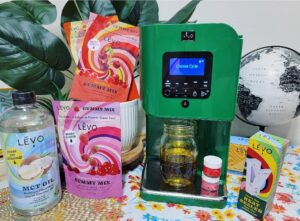
One way to address this issue is to make your own homemade edibles. LĒVO’s infusion machines, the LĒVO II, LĒVO Lux, or LĒVO C, can help you streamline the process of creating cannabis edibles, giving you full control over what you consume. You can also use these cost-effective machines to create cannabis-infused salves and bath bombs for topical treatments to help you de-stress and unwind. Learn more about the LĒVO difference and unlock an entirely new and effective way to manage your anxiety.

Get Your Free eBook!
Download our FREE resource, The Ultimate Edibles Guidebook, full of recipes, infusion tips and everything you need to make your first batch of edibles today!

